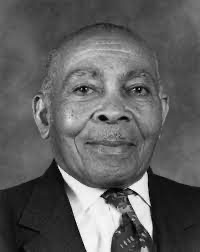Dr. Henry (j. 7/1970; d. 2001) was an internationally acclaimed scientist and professor emeritus in Howard University’s Physics Department. He rose from poverty on a peanut farm in Alabama to become a prominent researcher in magnetism and low-temperature physics. During World War II, while working at the Massachusetts Institute of Technology, he developed video amplifiers that were used in portable radar systems on warships. He died of congestive heart failure at 92.
In an obituary written on November 8, 2001, the Washington Post states that he “told a biographer that he learned to read when he was 4 and would accompany his father on walks in the woods with the scientist George Washington Carver, who lived on the family farm for a summer performing research. He would meet Carver again as a mentor, when he was a student at Tuskegee Institute, from which he graduated in 1931.” What is not widely known is that, when Dr. Henry graduated, he had enough credits for three majors (mathematics, English, and French) and three minors (physics, chemistry, and German).
Henry began his career by teaching in the Alabama public school system before moving on the earn a master’s degree in organic chemistry from Atlanta University in 1937, and a doctoral degree in physical chemistry from the University of Chicago in 1941. Over the course of his career, Dr. Henry taught physics to the first classes of Tuskegee Airmen; taught at Morehouse, where he also served as the acting head of the physics department; and taught at Howard.
Dr. Henry was active in various science organizations. He was chairman of the American Physical Society’s committee on minorities in physics. He also was a member of the Washington Academy of Sciences and a fellow of the American Association for the Advancement of Science and the American Physical Society. In 1998, he was awarded the Lifetime Engineering Achievement in Industry Award from the National Society of Black Engineers. And in 1999, he was awarded the University of Chicago’s Professional Achievement Citation.
Wikipedia article on Warren Henry
Washington Post obituary of Warren Henry

